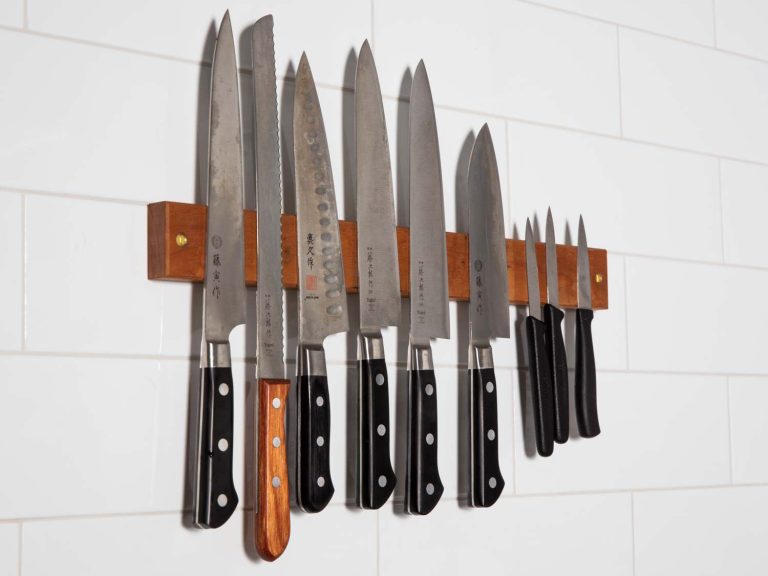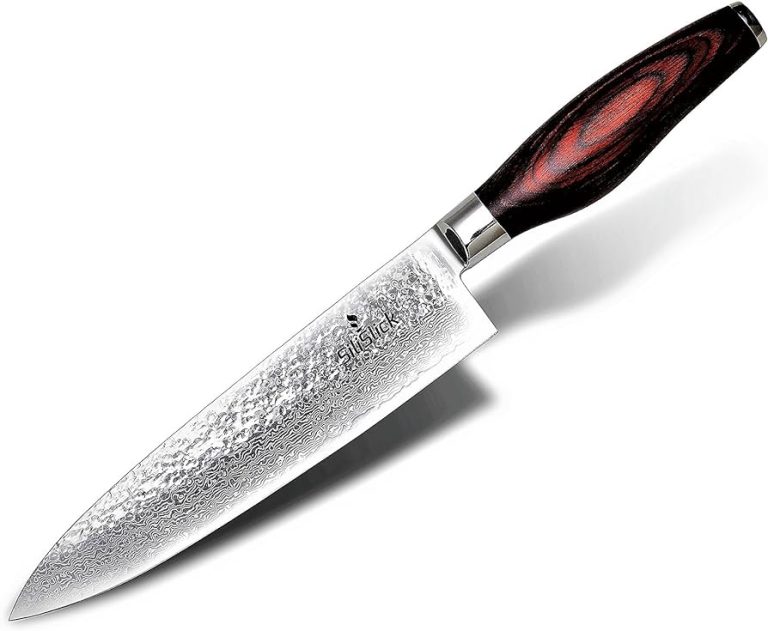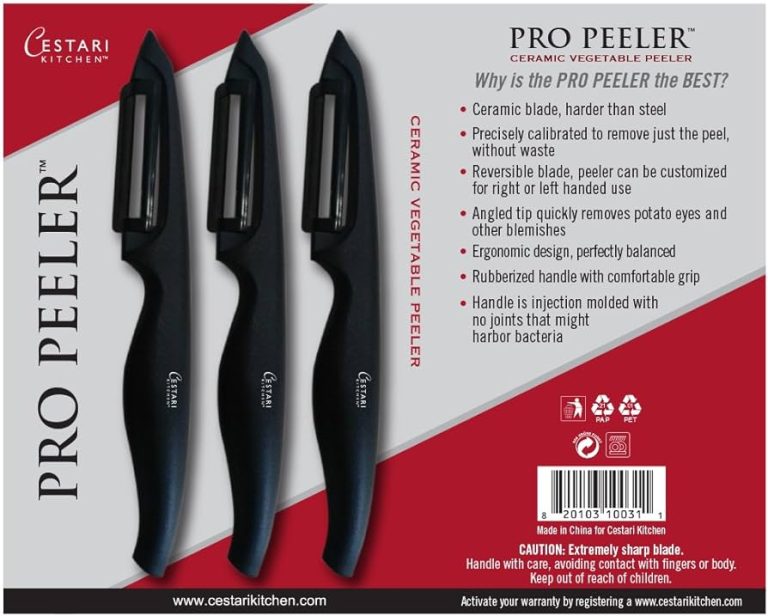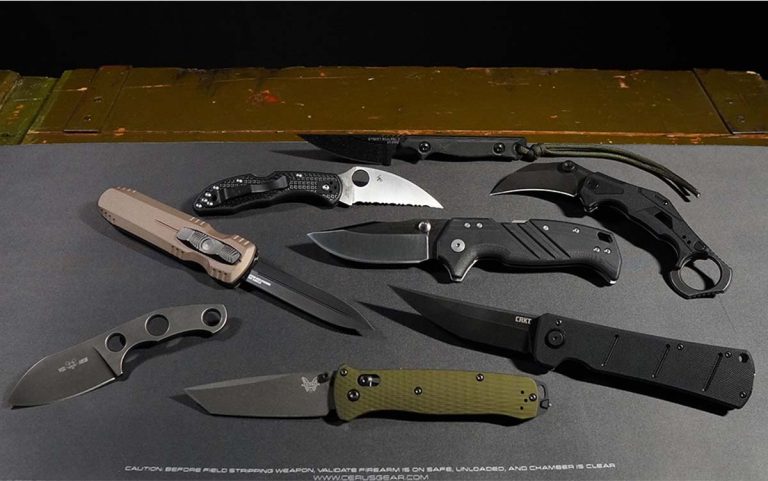A Comprehensive Guide to Damascus Knives You Should Know About
Damascus knives are highly sought after for their exquisite craftsmanship and sharpness, making them a must-have for any knife enthusiast. This comprehensive guide provides all the essential information you need to know about Damascus knives, from their history and construction to their advantages and care.
Whether you are a professional chef or a collector, understanding the intricacies of Damascus knives will enable you to make an informed decision when purchasing or caring for one. So, let’s dive into the world of Damascus knives and unravel the secrets behind their timeless appeal.
What Are Damascus Knives?
A Damascus knife is a type of knife known for its unique construction and exceptional quality. The history of Damascus knives dates back centuries and they hold great significance in culinary and collectible contexts.
The craftsmanship and artistry involved in creating a Damascus knife are truly remarkable. These knives are characterized by their distinctive patterns, which are achieved through a process called pattern welding. This involves layering multiple types of steel together and then forging and folding them repeatedly to create a visually stunning blade.
One of the key benefits of Damascus knives is their exceptional strength and durability. The layering technique used in their construction results in a blade that is not only sharp but also resistant to chipping and wear.
Over time, modern adaptations and variations of Damascus knives have emerged. Some incorporate different materials, such as carbon fiber or titanium, to enhance their performance and aesthetic appeal. Others feature unique handle designs or blade shapes to cater to specific cutting needs.
Whether you are a professional chef or a knife enthusiast, Damascus knives are a fascinating and valuable addition to any collection. Their rich history, exceptional construction, and continuous innovation make them a must-have for those who appreciate the artistry of knife-making.
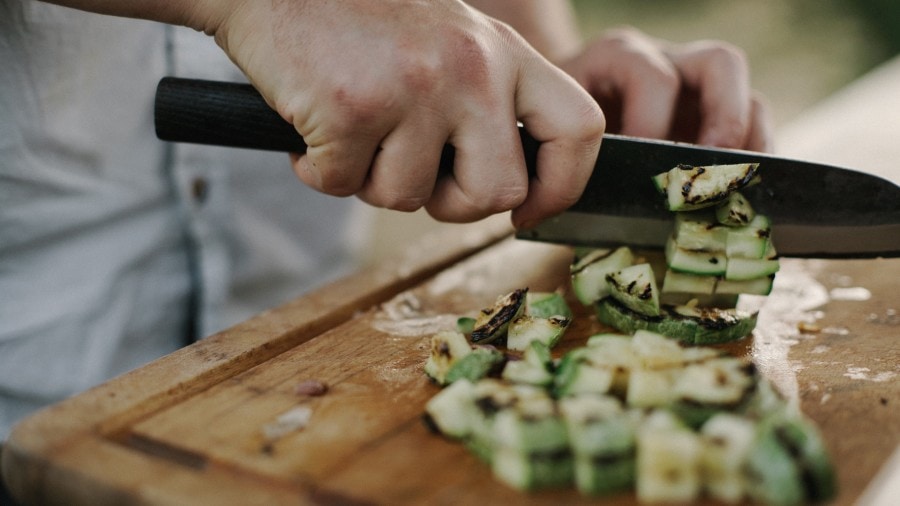
Credit: damas-knives.com
Unveiling The Art Of Forging Damascus Knives
A Comprehensive Guide to Damascus Knives you Should Know About:
The meticulous process of creating Damascus steel involves a combination of traditional techniques and the use of specific materials. The blade’s distinct pattern and exceptional durability are a result of this intricate craftsmanship.
Traditional techniques passed down through generations are still utilized by skilled artisans. These techniques involve layering and folding different types of steel to create the desired pattern and strength. By carefully manipulating the layers, a unique and eye-catching design is achieved.
Materials play a crucial role in determining the quality of the Damascus knife. High-carbon steel and low-carbon alloyed steel are commonly used. This combination of metals contributes to the blade’s hardness, flexibility, and ability to hold a sharp edge.
Heat treatment is another important step in the creation of Damascus knives. This process involves subjecting the blade to controlled high temperatures and then rapidly cooling it. This helps to refine the steel’s structure, enhancing its durability and overall performance.
The artistry and craftsmanship involved in forging Damascus knives make them highly sought after by collectors and enthusiasts alike. Their beauty, strength, and historical significance continue to captivate knife enthusiasts worldwide.
Choosing The Perfect Damascus Knife For Your Needs
When purchasing a Damascus knife, there are several factors to consider. Firstly, it’s important to understand the different types and styles available in the market. Damascus knives come in various shapes and sizes, such as chef’s knives, Santoku knives, and utility knives. Each type serves a specific purpose, so it’s essential to evaluate your needs and choose accordingly.
Another vital aspect to consider is the blade pattern. Damascus steel is known for its beautiful patterns that are created through the layering and folding process. These patterns not only enhance the aesthetic appeal of the knife but can also indicate its quality and craftsmanship. Popular blade patterns include ladder, twist, raindrop, and feather.
By taking into account your specific needs and understanding the various blade patterns, you can choose the perfect Damascus knife that not only complements your cooking style but also adds a touch of elegance to your kitchen.
Maintaining And Caring For Your Damascus Knife
In order to ensure the longevity and cutting edge of your Damascus knife, proper cleaning and maintenance practices should be followed. Cleaning the knife after each use is crucial to prevent any buildup of food residue or bacteria. Use a mild soap and warm water to gently clean the blade, making sure to avoid abrasive cleaners or scrubbers that can damage the delicate pattern of the Damascus steel. After cleaning, thoroughly dry the knife to prevent any potential rusting.
When it comes to storage, it is important to choose a suitable environment that protects the knife from moisture and humidity. Consider using a knife block, a knife roll, or a blade sheath made of materials such as leather or wood. These options offer a protective layer and prevent the blade from coming into contact with other objects that could cause damage.
To preserve the cutting edge of your Damascus knife, it is advised to use a sharpening stone or honing rod regularly. This will help maintain the sharpness and precision of the blade. Additionally, it is recommended to avoid using the knife on hard surfaces such as glass or ceramic, as this can dull the edge.
The Versatility Of Damascus Knives In The Kitchen
The Versatility of Damascus Knives in the Kitchen
Damascus knives are highly versatile tools that offer numerous benefits for food preparation. The unique pattern on the blade is not only visually appealing but also serves a functional purpose. These knives are renowned for their exceptional sharpness and durability, making them ideal for various kitchen tasks.
| Various Kitchen Tasks | Benefits of Using Damascus Knives |
|---|---|
| Cutting fruits and vegetables | Effortless precision due to sharpness |
| Slicing meat and fish | Ensures clean and precise cuts |
| Chopping herbs and spices | Retains flavors and aromas |
Using Damascus knives can truly elevate your cooking experiences. The exceptional sharpness and edge retention allow for seamless slicing, dicing, and chopping. Food preparation becomes a joyous task as you effortlessly glide through ingredients.
Collecting And Investing In Damascus Knives
A Comprehensive Guide to Damascus Knives You Should Know About
The art of knife collecting and the allure of Damascus blades can captivate both enthusiasts and investors alike. Here, we delve into the desirable features and characteristics that make Damascus knives highly sought after by collectors.
When it comes to knife collecting, authenticity is crucial. Genuine Damascus blades are renowned for their beautiful patterns and superior craftsmanship. These knives are traditionally made by forging together different types of steel, resulting in a distinctive layered appearance. The interplay of contrasting metals creates unique patterns that mesmerize collectors. When purchasing and evaluating authentic Damascus knives, keep these essential tips in mind.
| Desirable Features | Tips for Purchasing and Evaluating |
|---|---|
|
|
By focusing on these aspects, collectors can ensure they acquire genuine Damascus knives that possess both artistic beauty and lasting value.
The Rise Of Damascus Knives In The Professional World
| The Rise of Damascus Knives in the Professional World |
Damascus knives have become the preferred choice for both professional chefs and home cooks alike. Their exceptional quality and exquisite craftsmanship make them indispensable tools in culinary establishments. With their razor-sharp blades and distinctive patterns, Damascus knives offer numerous advantages for chefs in the kitchen.
One advantage of using Damascus knives is their unmatched durability. These knives are made of multiple layers of high-quality steel, resulting in a strong and resilient blade that can withstand the demands of a professional kitchen. The combination of hard and soft steel layers also provides excellent edge retention, allowing chefs to maintain the sharpness of their knives for longer periods.
Additionally, Damascus knives’ unique patterns, created by the process of layering and forging different types of steel, add a touch of elegance to any kitchen. Chefs take pride in using these visually stunning knives, enhancing the overall presentation of their meals.
Over the years, Damascus knives have gained immense popularity and demand in the culinary industry. Their exceptional performance, durability, and aesthetic appeal have made them a coveted tool among chefs. Whether you are a professional chef working in a restaurant or a passionate home cook, investing in a Damascus knife can elevate your culinary experience to new heights.
Damascus Knives As A Symbol Of Prestige And Craftsmanship
Damascus Knives as a Symbol of Prestige and Craftsmanship
The cultural significance and symbolism associated with Damascus knives are unparalleled. These blades have long been revered for their exquisite craftsmanship and timeless elegance. The stories and legends surrounding famous Damascus blades add to their mystique and allure, making them highly sought after by collectors and enthusiasts alike.
Appreciating the mastery of craftsmen and their legacy is an essential part of understanding the value of Damascus knives. The intricate patterns and layers on these blades showcase the skill and dedication required to create such works of art. Each knife tells a unique story, carrying with it the heritage and tradition of generations of craftsmen.
Whether you are a chef, a collector, or simply someone who appreciates fine craftsmanship, a Damascus knife is a must-have. Its beauty and functionality make it a prized possession, while its history and cultural significance elevate it to a symbol of prestige. Owning a Damascus knife is not just about owning a tool; it is about owning a piece of history.
Conclusion
Damascus knives have captivated the culinary world with their storied history and exceptional craftsmanship. These knives are more than just tools; they are works of art. Their unique patterns and stunning aesthetics make them a favorite among professional chefs and knife enthusiasts alike.
In addition to their beauty, Damascus knives also offer superior performance. The layering and folding process used in their creation creates a blade with exceptional strength, sharpness, and durability. Whether you are a professional chef or a home cook, investing in a Damascus knife is a decision you won’t regret.
With proper care, these knives can last a lifetime and become cherished heirlooms. From its mesmerizing patterns to its unparalleled cutting abilities, a Damascus knife is a true testament to the artistry and skill of its maker. So, bring the allure of Damascus into your culinary endeavors and experience the joy and satisfaction of working with a truly exceptional knife.


